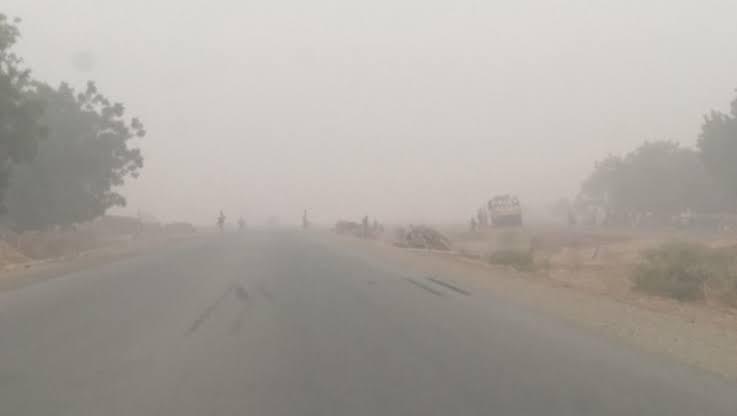The harmattan season, marked by cold temperatures, dry air and dusty winds, is a distinctive weather phenomenon in Nigeria. It brings relief from the relentless heat of the dry season but comes with challenges that affect health, agriculture, transportation and the economy.
This fascinating yet demanding season calls for careful management to minimize its effects on individuals and communities.
Health woes in harmattan
Harmattan’s impact on public health is significant. The dusty winds carry fine particles that irritate the respiratory system, causing a surge in asthma, pneumonia and other respiratory ailments.
Those with pre-existing conditions often experience aggravated symptoms, with children and the elderly being the most vulnerable.
- Al-Habibiyyah charges Muslims on cooperation for development
- The lost compass for visionary leadership
Cold temperatures exacerbate the situation, aggravating conditions such as arthritis and causing widespread skin dryness, flaking, and cracking. Chapped lips and eye irritation are common, while the prevalence of colds, flu and other viral infections increases as the body struggles to adjust to sudden temperature drops.
To address these health challenges, individuals are advised to dress warmly, especially during mornings and evenings, wear protective masks to minimize exposure to dust-laden air, moisturize regularly and stay hydrated to maintain skin health, health facilities should prepare adequately and stocking essential medications and running public education campaigns to help people stay safe.
Transportation in crisis
Harmattan haze, thick with dust, disrupts transportation by reducing visibility. This increases the risk of road accidents and causes delays or cancellations of air travel. These disruptions have far-reaching economic implications, hindering logistics, delaying goods, and frustrating travellers and businesses alike.
Agriculture and environmental risks
For farmers, harmattan is both a blessing and a curse. While the dry conditions benefit certain crops, they also heighten the risk of bushfires that can devastate farmlands and forests, worsening food security concerns.
Farmers should adopt sustainable practices to mitigate these risks, such as cultivating cold-resistant crops and implementing irrigation systems.
Communities must engage in bushfire prevention by practising responsible land clearing and safely disposing of flammable materials.
Economic pressures
The economic burden of harmattan is heaviest on low-income households. The increased demand for warm clothing, blankets, and heating appliances often leads to price hikes.
Outdoor workers, such as farmers and street vendors, face reduced productivity due to the harsh weather, which impacts their earnings.
Harmattan is a paradoxical season of relief and struggle—a vivid reminder of nature’s duality. Its challenges across health, transportation, agriculture and the economy demand resilience and adaptability.
With proactive planning, community support, and individual vigilance, Nigerians can turn this season into an opportunity to strengthen preparedness for future seasonal changes.
Usman Muhammad Salihu is a fellow of PRNigeria and can be reached at [email protected]

 Join Daily Trust WhatsApp Community For Quick Access To News and Happenings Around You.
Join Daily Trust WhatsApp Community For Quick Access To News and Happenings Around You.


